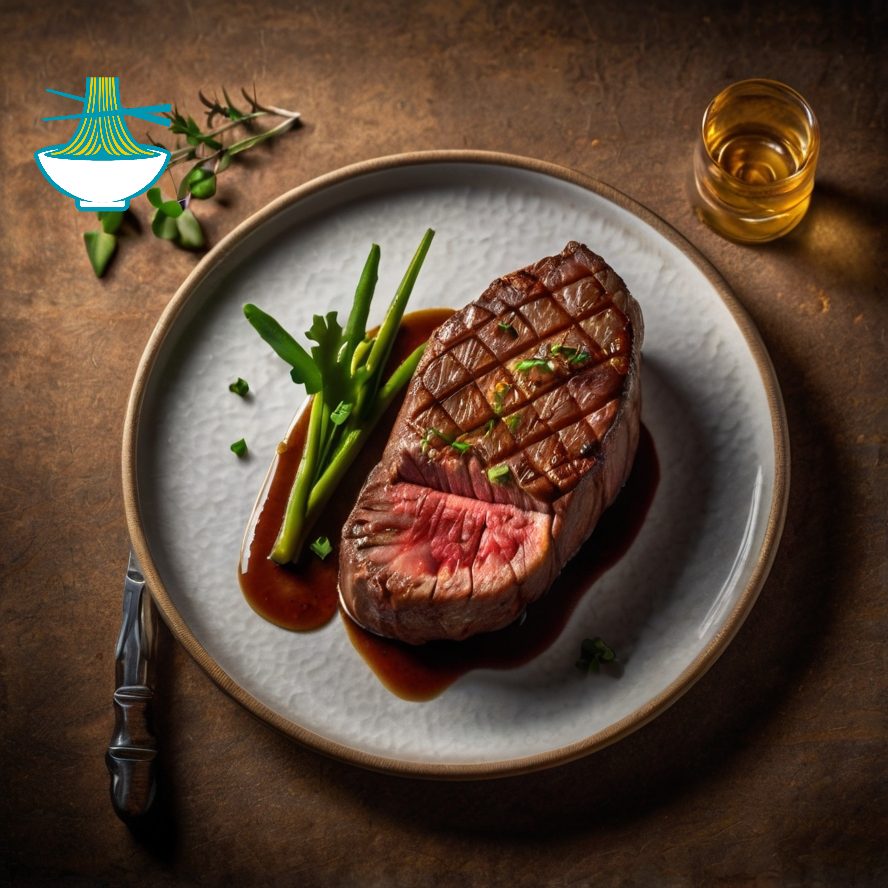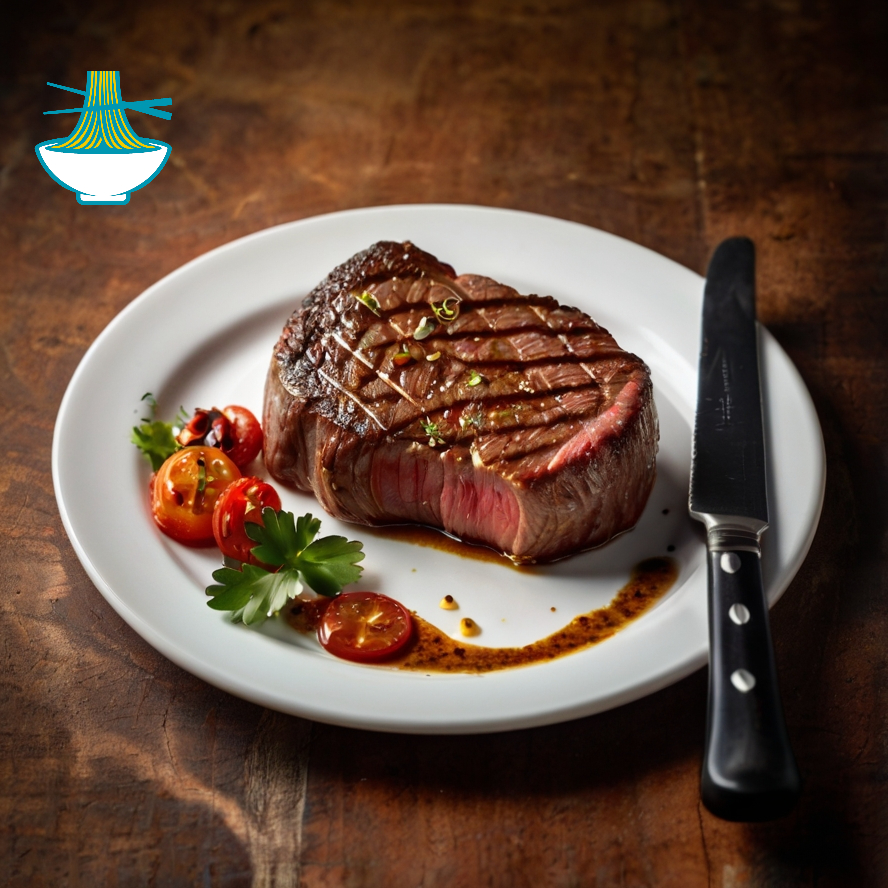Discover the rich taste of Namibian Oryx Steak, a unique and flavorful dish made from the tender meat of the oryx, a renowned game animal in Namibia. This recipe guides you through the process of preparing and cooking oryx steak to perfection, highlighting its distinctive taste and texture. Perfect for adventurous eaters and those looking to explore traditional Namibian cuisine, this dish is sure to impress at your next dinner gathering.
Ingredients:
- 2 oryx steaks (about 1 inch thick)
- 2 tablespoons olive oil
- 3 cloves garlic, minced
- 1 tablespoon fresh rosemary, chopped
- 1 tablespoon fresh thyme, chopped
- Salt and pepper to taste
- 1 tablespoon balsamic vinegar
- 1 tablespoon soy sauce
Instructions:
Prepare the Marinade:
In a small bowl, mix together the olive oil, minced garlic, rosemary, thyme, salt, pepper, balsamic vinegar, and soy sauce.
Marinate the Steaks:
Rub the marinade mixture over the oryx steaks, ensuring they are well-coated. Cover and refrigerate for at least 1 hour to allow the flavors to meld.
Preheat the Grill or Pan:
If using a grill, preheat it to medium-high heat. If using a pan, heat it over medium-high heat.
Cook the Steaks:
Remove the steaks from the marinade and discard any excess marinade. Place the steaks on the hot grill or pan. Cook for about 4-5 minutes per side for medium-rare, or longer if desired.
Rest and Serve:
Once cooked to your preferred doneness, remove the steaks from the heat and let them rest for 5 minutes. This allows the juices to redistribute.
Serve:
Slice the steaks against the grain and serve with your favorite side dishes. Enjoy the rich, gamey flavor of Namibian Oryx Steak!
Nutritional Values
Oryx Steaks (2, about 1 inch thick)
- 180-200 calories
- 22-26 grams of protein
- 8-12 grams of fat
- 0 grams of carbohydrates
Benefits: High in lean protein, which supports muscle growth and repair. Rich in essential nutrients like iron, zinc, and B vitamins. Oryx meat is typically lower in fat compared to beef, making it a healthier red meat option.
Olive Oil (2 tablespoons)
- 240 calories
- 27 grams of fat (4 grams of saturated fat)
- 0 grams of cholesterol
Benefits: Rich in monounsaturated fats, which can help reduce bad cholesterol levels. Contains antioxidants and has anti-inflammatory properties.
Garlic (3 cloves, minced)
- 13 calories
- 0.6 grams of protein
- 0.05 grams of fat
- 3 grams of carbohydrates (including 1 gram of sugar)
Benefits: Known for its potential cardiovascular benefits, including lowering blood pressure and cholesterol levels. Contains antioxidants and has anti-inflammatory effects.
Fresh Rosemary (1 tablespoon, chopped)
- 5 calories
- 0.2 grams of protein
- 0.1 grams of fat
- 1 gram of carbohydrates
Benefits: Contains antioxidants and anti-inflammatory compounds. May support digestion and improve memory and concentration.
Fresh Thyme (1 tablespoon, chopped)
- 3 calories
- 0.1 grams of protein
- 0.1 grams of fat
- 0.7 grams of carbohydrates
Benefits: Rich in antioxidants and has antimicrobial properties. Supports immune health and may help with respiratory conditions.
Salt (to taste)
- 0 calories
- High in sodium
Benefits: Essential for electrolyte balance and proper muscle and nerve function. Should be used in moderation to avoid excessive sodium intake.
Black Pepper (to taste)
- 6 calories per teaspoon
- 0.2 grams of protein
- 0.1 grams of fat
- 1.5 grams of carbohydrates
Benefits: Contains piperine, which may enhance nutrient absorption and provide antioxidant benefits. Adds flavor and heat to dishes.
Balsamic Vinegar (1 tablespoon)
- 14 calories
- 0 grams of fat
- 0 grams of protein
- 3 grams of carbohydrates
Benefits: May aid digestion and help regulate blood sugar levels. Contains acetic acid, which can support weight management and provide a tangy flavor.
Soy Sauce (1 tablespoon)
- 10 calories
- 1 gram of protein
- 0 grams of fat
- 1 gram of carbohydrates
- 800 mg of sodium
Benefits: Provides umami flavor and can enhance the taste of dishes. Contains small amounts of minerals such as manganese.


Comments